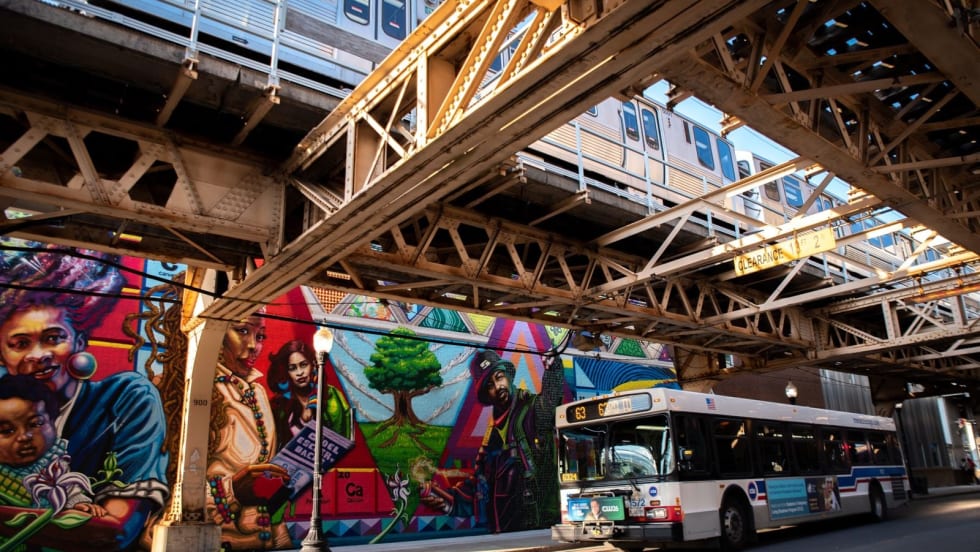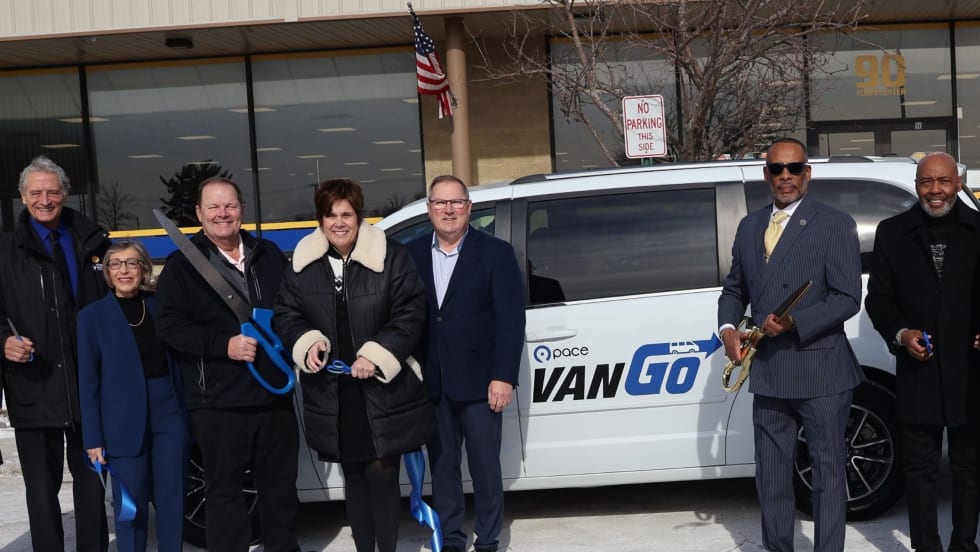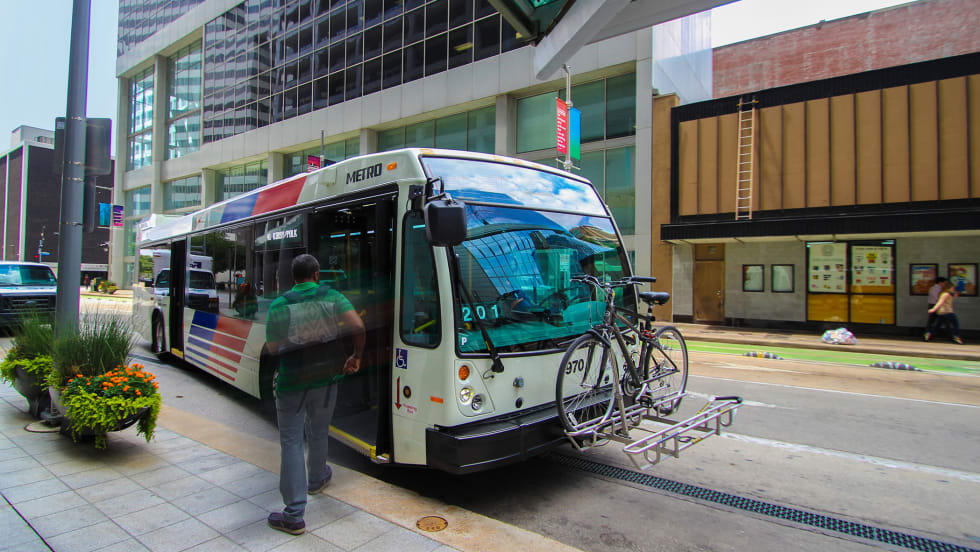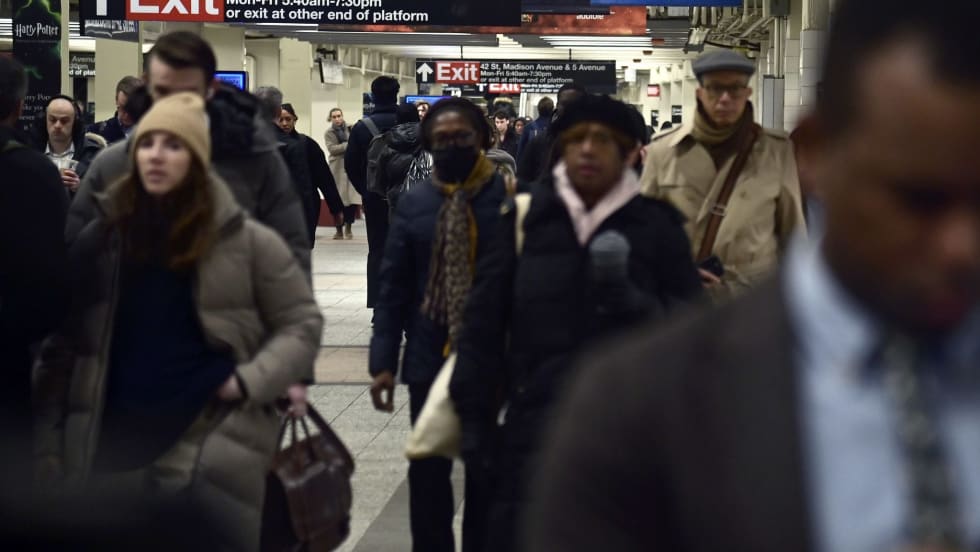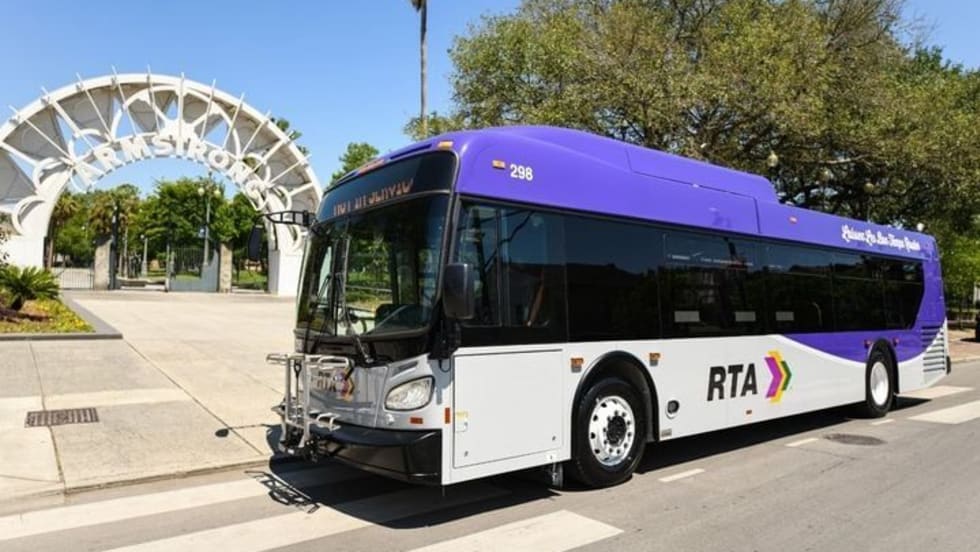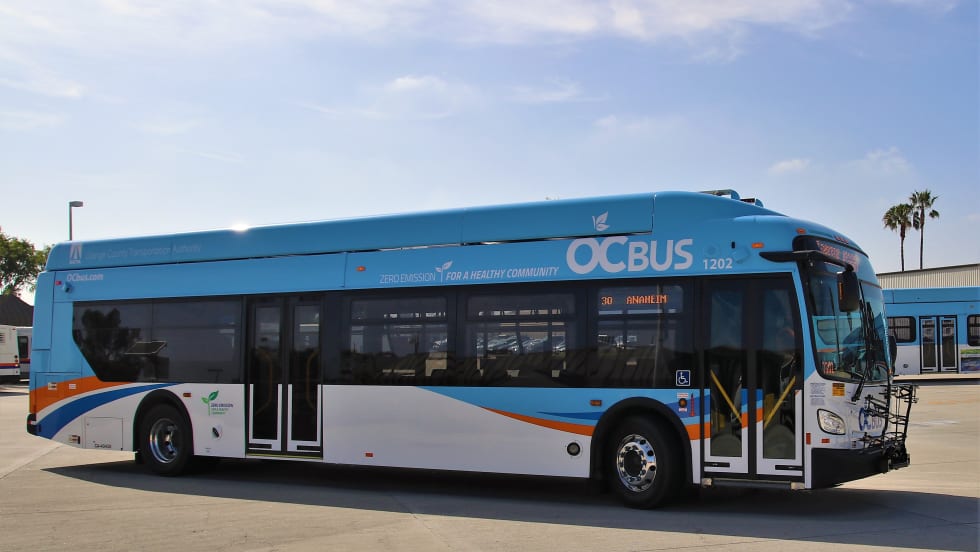Every transportation company, regardless of size, should determine whether it is in the company’s best interest to mandate vaccines for their drivers.
In the U.S., COVID-19 vaccines have been available to every individual age 16 and older since April, and vaccines have been available to those who are age 12 and older since May. In August 2021, the Pfizer vaccine was the first COVID-19 vaccine to receive full approval from the U.S. Food and Drug Administration (FDA),[1] which just recently formally authorized a booster dose of the Pfizer vaccine for individuals 65 years of age and older, and other vulnerable Americans.[2]
Now, with both public confidence and vaccination rates on the rise, coupled with full FDA approval of a vaccine, vaccine mandates for employees are becoming more common. The new Delta variant’s transmissibility is motivation for even more employers to institute vaccine mandates to protect their workforce, customers, and others.
Every transportation company, regardless of size, should determine whether it is in the company’s best interest to mandate vaccines for their drivers. Some key questions to ask when making this decision are:
Are drivers employees or independent contractors?
What will be the impact on workforce morale and retention?
How do you conduct business if drivers are vaccinated, including whether to advertise that fact to customers?
What are the potential administrative, time, and financial costs of implementing a vaccine policy?
How will you ensure compliance with federal and state laws?
This article offers a “Roadmap” for transportation businesses with employee or independent contractor drivers to help navigate this rough terrain. Below are some considerations for mandatory vaccination programs versus voluntary compliance.
Vaccine Mandates & the Government
On July 29, 2021, President Joe Biden announced vaccination requirements for all federal executive branch workers and employees of contractors that do business with the federal government.[3] He also called on state and local governments and the private sector to ramp up efforts to encourage vaccination. Employers, schools, nursing homes, restaurants, hospitals, and cities in all 50 states have announced vaccination requirements.[4]
At the state level, in July 2021, California was the first state to announce that is would require state employees to get the vaccine or submit to regular testing. New York State followed suit.[5] To continue vaccination efforts, on September 9, 2021, the President released his “COVID-19 Action Plan, Path Out of the Pandemic” imposing stringent new vaccine rules on federal workers, federal contractors, large employers, and health care staff.[6] Biden’s COVID-19 Action Plan also calls on state officials to make vaccinations mandatory for teachers and school staff.[7] Currently, nine states, as well as the District of Columbia and Puerto Rico, have vaccination requirements for K-12 school staff, including California, Connecticut, Hawaii, Illinois, New Jersey, New Mexico, New York, Oregon, and Washington. In Chicago, “droves” of school bus drivers have quit over the mandates, which apply to them.[8] However, despite hundreds of drivers threatening to not show up for work over similar requirements in Connecticut, few service disruptions were reported.[9] New York also requires bus drivers submit to weekly COVID-19 testing unless they show proof of vaccination,[10] and masks must be worn on buses regardless of vaccination status.[11]
New York State is also requiring all health care workers at hospitals and nursing homes to receive at least the first dose of a vaccine against the coronavirus by September 27, 2021.[12] On that day, Governor Kathy Hochul refused to yield to the deadline for health worker vaccinations, and Northwell Health announced that it fired approximately two dozen “unvaccinated leaders” who refused to get the COVID-19 shots.[13]To get the mandates tossed, many of the state’s major hospital and government employee unions have filed lawsuits citing the lack of religious exemptions to the requirement.[14]
In August, former New York Governor Andrew Cuomo announced that MTA and Port Authority employees working in New York facilities would be required to be vaccinated for COVID-19 by Labor Day.[15]In September, San Francisco Mayor London Breed announced that all San Francisco International Airport (“SFO”) workers are now required to be fully vaccinated against COVID-19, making it the first major U.S. airport to mandate COVID vaccinations for all workers. More broadly, starting in November, the U.S. will require COVID vaccinations for arriving international travelers.[16] Unvaccinated American citizens will need to be tested within a day before returning to the U.S., as well as after they arrive home.
As part of his COVID-19 Action Plan, Biden tasked the U.S. Department of Labor’s Occupational Safety and Health Administration (OSHA) with developing a rule that will require all employers with 100 or more employees to ensure their workforce is fully vaccinated, or require any worker who remains unvaccinated to produce a negative test result on at least a weekly basis before coming to work.[17] OSHA will issue an Emergency Temporary Standard (ETS) to implement this requirement, with weekly testing as a possible alternative. According to the White House, this new requirement will impact more than 80 million workers in private sector businesses. Draft regulations are expected within the coming weeks and should clarify when the mandate will take effect. The OSHA rule will not apply to independent contractors — only employees. Depending on their size, passenger ground transportation businesses may fall under the new OSHA ETS. Keep in mind that the ETS will not mandate vaccines — it will give employees the choice to provide proof of vaccination status or submit to testing — but businesses in most locations may choose to mandate vaccines for all employees and forgo testing.
Employers Mandating Vaccines – Legal Issues
Requiring employees to get immunizations and vaccines is not new. Those who work in health care, schools, and other industries are regularly required to get various vaccines as a condition of employment. Whether a transportation business can require drivers to get the COVID-19 vaccine depends on whether the driver is an at-will employee or a contract worker.
For employers, the availability of COVID-19 vaccinations raises questions about the applicability of various equal employment opportunity (EEO) laws, including the Americans with Disabilities Act (ADA), the Rehabilitation Act, Title VII of the Civil Rights Act (Title VII), and the Pregnancy Discrimination Act. According to guidance from the U.S. Equal Employment Opportunity Commission (EEOC), the federal EEO laws do not prevent an employer from requiring all employees physically entering the workplace to be vaccinated for COVID-19, subject to providing a reasonable accommodation due to a disability (under the ADA), or a sincerely held religious objection (under Title VII).[18] The EEOC’s guidance on addressing employees who cannot or will not be vaccinated due to a medical condition or sincerely held religious belief is unlikely to change when OSHA issues its ETS addressing mandatory vaccination policies for certain employers. EEOC guidance and laws do not apply to independent contractors.
For reasons related to the ADA’s restrictions on making disability-related inquiries of employees, employers who mandate vaccines are encouraged to have a third party administer them rather than doing it themselves.[19] By having a third party that does not have a contract with the employer — such as a pharmacy or health care provider — administer the vaccine, the employer is insulated from the pre-vaccination medical screening questions that are likely to elicit information about a disability. To avoid further triggering the ADA’s restrictions on disability-related inquiries, employers should tell employees to provide a copy of their vaccination card.[20] Employers should keep the proof of vaccination in confidential files (similar to employee medical files), separate from personnel files, and with restricted access.
If an employee does not have proof of vaccination, asking for the reason the employee did not get the vaccine could elicit information about a disability, and would be subject to the pertinent ADA standard that “disability-related” inquiries be “job-related and consistent with business necessity.”[21] Under current EEO guidance, to meet this standard, an employer would need to have a reasonable belief, based on objective evidence, that an unvaccinated employee will pose a direct threat to the health or safety of herself or himself, or others.[22]
Some employees may refuse to be vaccinated because of a medical condition, pregnancy, or sincerely held religious belief.[23] Under the current OSHA rules, employers who mandate vaccinations will be required to take additional measures under the ADA to engage in the interactive process with these employees — and be prepared to make reasonable accommodations for them. As a best practice, an employer introducing a COVID-19 vaccination policy and requiring documentation or other confirmation of vaccination, should notify all employees that the employer will consider requests for reasonable accommodation based on disability on an individualized basis.[24]
The EEOC advises that employers may rely on recommendations from the CDC when deciding whether an effective accommodation that would not pose an undue hardship is available.[25] Employers — especially those with 100 or more employees — should also consult applicable OSHA standards and guidance.[26] Up-to-date OSHA guidance for all rideshare, taxi, and car services is available here: https://www.osha.gov/coronavirus/guidance/industry.
In some circumstances, an employer may be able to exclude a worker from the workplace lawfully, even if the worker is unable to receive the vaccination because of a disability or sincerely held religious belief, and the inability to be vaccinated cannot be reasonably accommodated. This does not mean the employer may simply terminate the worker’s employment. Employers would need to determine if any other rights apply under the EEO laws or other federal, state, and local authorities before taking such a step. The same would be true if an employee is unwilling to be vaccinated for reasons that are not protected by EEO laws.
Paid Time off to Be Vaccinated
Federal, state, and local laws may require employers to provide paid leaves of absence for employees to receive COVID-19 vaccines, either under traditional sick leave laws or under COVID-19 specific legislation. OSHA is developing a rule that will require employers with more than 100 employees to provide paid time off for the time it takes for workers to be vaccinated or to recover if they are “under the weather” post-vaccination.[27]
In March 2021, New York State enacted legislation granting all public and private employees paid time off to receive the COVID-19 vaccine without having to use other types of leave.[28] Under the law, which went into effect March 15, 2021, and remains effective through 2022, employers must give employees up to four hours of paid time off per injection — which would include second doses and possibly any subsequent booster shots if necessary. This leave cannot be charged against any other leave that the employee may have available, including sick leave. According to the NYS Department of Labor (DOL), the law does not prevent an employer from requiring notice before taking paid leave, and employers may require proof of vaccination.[29] However, employers should consider any confidentiality requirements applicable to such records prior to requesting proof of vaccination.
Vaccines and Independent Contractors
Many essential worker-drivers are independent contractors. President Biden’s COVID-19 Action Plan does not address independent contractors, and OSHA rules do not apply to these workers either.[30] With respect to requiring vaccines, the terms of the contracts that create and govern the relationship between the worker and the company will dictate whether a vaccine mandate is permissible. A transportation business may require independent contractor (IC) drivers be vaccinated as a condition of the engagement if they include appropriate language in the driver contract. For current IC drivers, their existing contracts may need to be amended to allow such a mandate. Because these mandates are an aspect of control, this is an area of concern with respect to violating worker classification laws. We have reviewed and amended these agreements for numerous transportation businesses, and highly recommend a careful review of proposed or existing agreements with the assistance of legal counsel.
Factors to Consider in Deciding Whether to Require Vaccines
Some companies have already rolled out mandatory vaccination policies for their employees including Walmart, Disney, Google, Facebook, and Uber (for employees only, not drivers).[31] Delta Air Lines became the first public company to impose a $200 monthly surcharge beginning November 1, 2021 on unvaccinated employees that are enrolled in Delta’s account-based healthcare plan. Based on some published reports, employer vaccine mandates seem to elicit cooperation. For example, after Tyson Foods announced vaccine mandates, more than one-half of their respective unvaccinated employees were vaccinated.[32] United Airlines said that 97% of the company’s employees are now fully vaccinated.[33] However, six United Airlines employees recently filed a lawsuit in a Texas federal court to block the vaccine mandate.[34] The complaint alleges that the company discriminated against employees who requested religious or medical accommodations.[35] The lawsuit alleges that only some applicants for medical exemptions were asked to provide additional information, and that some applying for religious accommodations had to submit a letter from their pastor.[36]
Just because the EEOC has stated that employers not subject to the new presidential order may require the vaccines, does not necessarily mean employers should do so. In addition to ADA compliance, there are some considerations for employers before deciding whether to require employees to be vaccinated. Instead, employers could encourage employees to get the vaccine voluntarily on their own — and would not need to attend to the logistics of administering a vaccine policy, the burden of managing accommodation requests, the impact on morale, and the potential for litigation. Also, transportation companies looking to shield their drivers and passengers from resurgent COVID-19 cases during a labor shortage may risk losing drivers to health policies instead. Some employees may legally challenge an employer’s vaccination policy, or they may just quit.
These are only some of the concerns that transportation operators should take into consideration when deciding whether to mandate or encourage drivers and other employees to get vaccinated. Another option is to remain neutral and let employees decide for themselves. Remaining neutral would not appear to create any issues for transportation businesses.
Natural Immunity and Medical Exemptions
In a recently published editorial, Professor Marty Makary of the Johns Hopkins University School of Medicine and Bloomberg School of Public Health, cited more than 15 studies that have demonstrated the power of immunity acquired by previously having the virus.[37] For example, a 700,000-person study from Israel in early September 2021 found that those who had experienced prior infections were 27 times less likely to get a second symptomatic COVID-19 infection than those who were vaccinated.[38] According to a study issued in May 2021 from researchers at Washington University School of Medicine in St. Louis, months after recovering from mild cases of COVID-19, people still have immune cells in their body pumping out antibodies against the virus that causes COVID-19.[39]
However, there is recent research demonstrating that there needs to be caution in expecting natural immunity to be a guarantee against a future infection. For example, a recent laboratory study from the UK assessed the risk for reinfection from the Delta variant in those who had recovered from COVID-19. In the study, scientists at Oxford looked at the ability of antibodies in blood samples to neutralize the virus. The researchers found the risk for reinfection with the Delta variant differs depending on the strain of the initial infection. They found that individuals showed very different immune responses from each other following COVID-19, with some people from both the symptomatic and asymptomatic groups showing no evidence of immune memory six months after infection — or even sooner.[40]
After people recover from infection with a virus, the immune system retains a memory of it. Immune cells and proteins that circulate in the body can recognize and kill the pathogen if it is encountered again, protecting against disease and reducing illness severity. The National Institutes of Health (NIH) found lasting immunity after recovery from COVID-19. According to NIH, the immune systems of more than 95% of people who recovered from COVID-19 had durable memories of the virus up to eight months after infection.[41]
Depending on where they are located and the type of business, some companies may be able to allow for exemptions from vaccination mandates for those with proven antibodies. Major health systems in Michigan and eastern Pennsylvania are granting an exemption to employees who demonstrate natural immunity with antibody testing.[42]
Natural immunity is also emerging as potential legal challenge to COVID-19 vaccination mandates.[43] At Michigan State University, an employee challenging the school’s vaccine mandate cited natural immunity as part of an attempt to obtain a temporary restraining order against the school. The federal judge in the case denied the request, ruling the employee “has not demonstrated a strong likelihood of success on the merits of her claim.”[44] Government entities have a right to take reasonable precautions against the spread of communicable diseases like COVID-19, but that power has limits that are based in the 1905 Supreme Court decision Jacobson v. Massachusetts, 197 U.S. 11, that upheld a state smallpox vaccine mandate. It is possible that legal and scientific evolution may challenge that precedent.
In addition to the challenges involving persons with natural immunity, medical exemptions may be granted to an individual whose physician documents a diagnosis of one of the conditions the CDC considers a contraindication for the COVID-19 vaccination.[45] Contraindications include a severe allergic reaction after a previous dose or to a component of the COVID-19 vaccine, an immediate allergic reaction of any severity to a previous dose, or a known (diagnosed) allergy to any component of the vaccine.[46]
What to Do if Clients Ask Your Drivers to Be Vaccinated
Transportation companies may need to field questions about vaccination status or requests for vaccinated drivers from clients. Understandably, those in the business of transporting passengers are eager for business to return after experiencing such drastic reductions in business resulting from the pandemic-related closures. To the extent that people have stopped using car services and buses because they are concerned about catching the virus from their driver, it is tempting to advertise the fact that your drivers are vaccinated. However, companies should resist that temptation and carefully consider the legal ramifications of making such representations to customers directly or in advertisements to the public.
The vaccination status of a workforce, even if aggregated, would inappropriately disclose individuals’ private information. An employee’s vaccination status is medical information that an employer must keep confidential by law. The EEOC has taken the position that any information concerning an employee's medical condition is protected under the ADA or FMLA.[47] The EEOC guidance is clear that “[t]he ADA requires employers to keep any employee medical information obtained in the course of the vaccination program confidential.”[48] This would include whether a worker has received a vaccine. Organizations and businesses can be fined up to $75,000 for a first ADA violation, and up to $150,000 for any subsequent violation.[49] In addition, the CDC does not know how long the vaccine provides immunization or whether it will prevent those who have been vaccinated from spreading the virus to others.[50] Advertising that your drivers are “immune” or “COVID-free” could be considered misleading, and give customers a false sense of security.
COVID-19 Transportation Safety Precautions in Addition to Vaccinations
In addition to fielding questions about the driver vaccination status, transportation companies may also need to field questions concerning any additional steps to enhance vehicle cleanliness, especially as concerns over the Delta variant and its effects persist.
Even if a driver is vaccinated, masks, vehicle cleaning and disinfection, and other mitigation measures will still need to be followed. Those who receive the vaccine will still be required to follow the CDC’s guidance, and any federal, state, or local laws related to curbing the spread of the virus in public places (wear masks, avoid close contact with others and address poorly ventilated spaces, etc.). In addition, the executive orders that President Biden signed the day after he took office requiring face coverings be worn on all forms of public transportation — including taxis, rideshares, paratransit services, and buses — remain in effect and apply regardless of vaccination status.[51] Passengers 2 years of age and older and drivers must wear a mask on buses or vans operated by public or private school systems including early care and education/child care programs.[52]
Near the start of the pandemic, the U.S. Environmental Protection Agency (“EPA) published “List N,” which includes a variety of disinfectants.[53] The EPA expects products on List N to kill all strains and variants of the coronavirus SARS-CoV-2 (COVID-19) when used according to the label directions. The products included on List N are for use on surfaces. While not mandated, transportation companies may be interested in utilizing foggers for their vehicles. In fact, one company has announced a pilot program with a New York City limousine company[54] to utilize a botanical cleaning formulation as a fogger to cover all surfaces of the interior of the vehicles.[55]
Conclusion
Many have welcomed the arrival of vaccines, and many are voluntarily being vaccinated when they have become eligible – regardless of any vaccine mandates. Implementing a vaccine mandate for employees or independent contractors raises many questions for transportation businesses. Transportation operators should carefully weigh the benefits and considerations of mandating vaccines before making any policy decisions. Employers should include input from management, human resources, employees, and legal counsel, as appropriate. Those transportation companies that wish to encourage vaccines without making them mandatory should consult CDC resources on promoting vaccination in the workplace, as well as experienced counsel.[56]
[1]https://www.fda.gov/news-events/press-announcements/fda-approves-first-covid-19-vaccine
[2]https://www.fda.gov/news-events/press-announcements/fda-authorizes-booster-dose-pfizer-biontech-covid-19-vaccine-certain-populations
[18] U.S. EEOC, What You Should Know About COVID-19 and the ADA, the Rehabilitation Act, and Other EEO Laws, Technical Assistance Questions and Answers, Dec. 16, 2020 (herein “EEOC Covid-19 Technical Assistance”), https://www.eeoc.gov/wysk/what-you-should-know-about-covid-19-and-ada-rehabilitation-act-and-other-eeo-laws
[19] Pre-vaccination medical screening questions are likely to elicit information about a disability. If the employer or a contractor on the employer’s behalf asks these questions, then employer must show that these “disability-related” inquiries are “job-related and consistent with business necessity.” https://www.eeoc.gov/wysk/what-you-should-know-about-covid-19-and-ada-rehabilitation-act-and-other-eeo-laws
[20] EEOC Covid-19 Technical Assistance, Question K.2.
[21] EEOC Covid-19 Technical Assistance, Question K.5.
[22] EEOC Covid-19 Technical Assistance, Question K.12.
[23]https://www.cdc.gov/coronavirus/2019-ncov/vaccines/recommendations/underlying-conditions.html
[24] EEOC Covid-19 Technical Assistance, Question K.5.
[25] EEOC Covid-19 Technical Assistance, Question K. 5.
[26]Id.
[27] https://www.whitehouse.gov/covidplan/
[28] Senate Bill S2588A, Assembly Bill A3354 (2021-2022 legis. Session)
[29] https://dol.ny.gov/system/files/documents/2021/05/cd6-paid-leave-for-covid19-vaccinations-5-18-21.pdf
[30] https://www.whitehouse.gov/covidplan/
[31]https://www.nytimes.com/2021/07/30/business/covid-vaccine-mandates-rto.html
[32]https://www.whitehouse.gov/covidplan/
[53] About List N: Disinfectants for Coronavirus (COVID-19) | US EPA
[54] HyperFog entered into a pilot program with NuRide Transportation Group, LLC, a New York City limousine service, for mobile in-vehicle fogging services using Thymox, a commercially available botanical fog cleaner.
[55]https://www.businesswire.com/news/home/20210920005974/en/HyperFog%E2%84%A2-Pilot-Study-Announced-With-New-York-City-Limo-Service
[56]https://www.cdc.gov/flu/business/promoting-vaccines-workplace.htm




